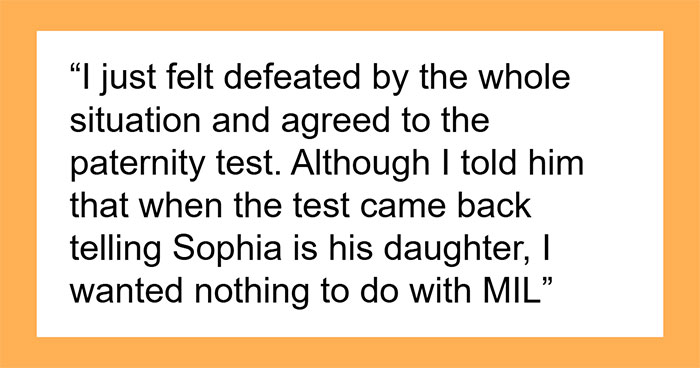What is the Dunning-Kruger effect?
The Dunning-Kruger effect is a phenomenon where people mistakenly think they’re super good at something when they’re really not. It’s like when your buddy tries to fix the bike but ends up making it worse. It was named after two psychologists who studied why some folks overestimate their abilities. You might have seen this in action when you play a game and your friend says they’ll crush you but actually end up losing big time.
So, picture this: You’re looking for a therapist near you because you’ve been feeling anxious lately. Now, someone with a bad case of Dunning-Kruger might say, “Why would you need that? I never get nervous, just chill out!” But the truth is, they might not realize their own insecurities. It’s a tricky thing to understand because sometimes the people who need the most help are the ones who think they have it all figured out.
The Psychology behind the Dunning-Kruger effect
The Dunning-Kruger effect is like when you think you’re super good at something, but you’re not as great as you believe. It’s kinda like wearing sunglasses that make you see things a bit too rosy. It’s all about people overestimating their abilities because they don’t know enough to see their own mistakes.
Therapy Connections Today says this happens because folks who aren’t so savvy might lack the skills to recognize their own gaps. So, instead of realizing they don’t know much, they might feel like they’re the smartest cookies in the jar. It’s like believing you’re the fastest runner just because you’ve never been in a real race before.
How does the Dunning-Kruger effect affect decision-making?
The Dunning-Kruger effect can sneak up on decision-making like a friend who plays a prank on you. Imagine a student who thinks they’re the smartest in class but actually struggle with the material. They might confidently make decisions based on faulty knowledge, leading to mistakes and misunderstandings. This overconfidence can cloud their judgment, making it harder to see when they’re heading down the wrong path.
Picture a therapist who believes they have all the answers without seeking input from colleagues or considering new perspectives. This can limit their ability to provide effective treatment and support to their clients. The Dunning-Kruger effect can create a barrier to growth and learning, as individuals may resist feedback or resist admitting when they need help. It’s like trying to build a house with only half the tools – you might make progress, but you’re missing out on crucial elements that could make the end result stronger.
Real-life examples of the Dunning-Kruger effect
In everyday life, the Dunning-Kruger effect can show up in various situations, such as when someone thinks they know it all about a topic, but in reality, they lack the knowledge to back it up. For instance, imagine a person who believes they are a therapy expert just because they watched a few videos online. They may confidently give advice to friends or family members without realizing the potential harm they could cause due to their limited understanding.
Another common scenario is when individuals overestimate their driving skills. Picture a teenager who has just obtained their learner’s permit convinced that they are a pro behind the wheel. Despite limited experience on the road, they may exhibit risky behaviors like speeding or changing lanes abruptly, putting themselves and others at risk. This overconfidence in their abilities reflects a classic example of the Dunning-Kruger effect in action.
Cognitive biases related to the Dunning-Kruger effect
When people fall prey to the Dunning-Kruger effect, their brains can play tricks on them. One common cognitive bias is confirmation bias, where individuals only seek out information that aligns with their existing beliefs. This can further inflate their overconfidence and make them resistant to accepting new perspectives or feedback.
Another cognitive bias linked to the Dunning-Kruger effect is the anchoring bias. This occurs when individuals rely too heavily on the initial piece of information they receive, anchoring their judgment around it without considering other relevant data. As a result, they may make erroneous decisions based on incomplete or misleading information.
Can the Dunning-Kruger effect be overcome?
The good news is that yes, the Dunning-Kruger effect can be overcome! It may not be easy-peasy, lemon-squeezy, but with some effort, it’s doable. One way to tackle this is by seeking feedback from others. When we listen to what others have to say about our abilities or knowledge, it can help us become more aware of our blind spots and areas where we may need to improve.
Another helpful trick is to keep on learning and growing. By expanding our knowledge and skills through education, training, or even just plain ol’ experience, we can gradually build up our competence and confidence. So, don’t be afraid to step out of your comfort zone and try new things – you might just surprise yourself with how much you can achieve!
The impact of the Dunning-Kruger effect on society
The Dunning-Kruger effect can have a big impact on society. Imagine if someone thinks they’re a total expert on something when they’re actually not so hot. They might make decisions that affect a lot of people without realizing they’re not really on the ball. This can lead to all sorts of problems like bad policies or decisions that don’t make much sense.
When people with the Dunning-Kruger effect are in charge, things can get a bit messy. They might not listen to advice from folks who really know what they’re talking about. This can lead to poor outcomes, and cause frustration for everyone involved. It’s like having a captain who doesn’t know how to steer the ship but thinks they’re the best sailor in the world!
How to recognize the Dunning-Kruger effect in yourself
It can be tricky to spot the Dunning-Kruger effect in yourself, but there are some signs to watch out for. One clue is if you always think you know best about everything, even without much experience or knowledge. For example, if you believe you’re a top-notch chef after making a decent bowl of cereal, that might be a red flag.
Another hint is if you don’t take feedback well and get defensive when someone points out a mistake you made. Instead of being open to learning and improving, you might brush off criticism or make excuses. Remember, no one is perfect and we can all benefit from constructive feedback to grow.
Debunking myths about the Dunning-Kruger effect
One common misconception about the Dunning-Kruger effect is that it only applies to people who are not very smart. But that’s not entirely true! The Dunning-Kruger effect is actually about how people of all intelligence levels can sometimes overestimate their abilities in certain areas. It’s not about being smart or not, it’s more about our perceptions and how they can sometimes fool us.
Another myth is that once you become aware of the Dunning-Kruger effect, you’re immune to it. Unfortunately, that’s not quite the case. Even knowing about this effect doesn’t guarantee that you won’t fall into its trap. It takes constant self-awareness and humility to avoid its pitfalls. So, knowing about it is a good start, but it’s not a guaranteed shield against it.
The future implications of studying the Dunning-Kruger effect
Research on the Dunning-Kruger effect could help us understand more about why some people overestimate their abilities while others underestimate themselves. By diving deeper into this phenomenon, we might uncover valuable insights into how we perceive our own skills and knowledge. This knowledge could potentially lead to strategies to help individuals develop a more accurate self-assessment, which could improve decision-making and overall success.
Moreover, exploring the Dunning-Kruger effect may shed light on how societal attitudes and behaviors are impacted by individuals with inflated self-perceptions. By recognizing and addressing this bias, we may be able to create more effective communication strategies, foster better collaboration, and promote a culture of humility and continuous learning. Understanding the implications of the Dunning-Kruger effect could pave the way for a more self-aware and introspective society, where individuals are encouraged to seek feedback, embrace feedback, and strive for personal development.
More info: therapyconnectionstoday.com

So what is it called when people say you're good or great, but you know you're not?
So what is it called when people say you're good or great, but you know you're not?

 Dark Mode
Dark Mode 

 No fees, cancel anytime
No fees, cancel anytime 




























-4
2